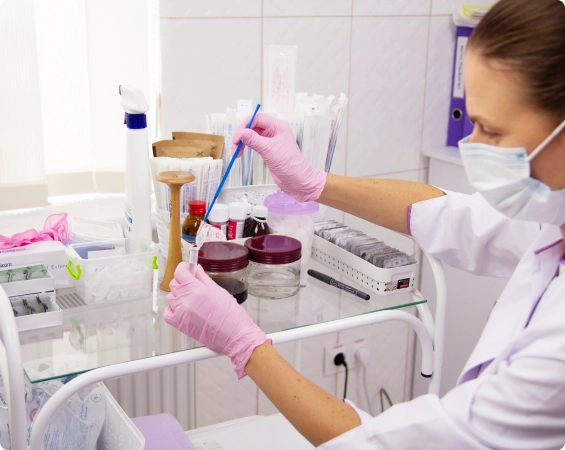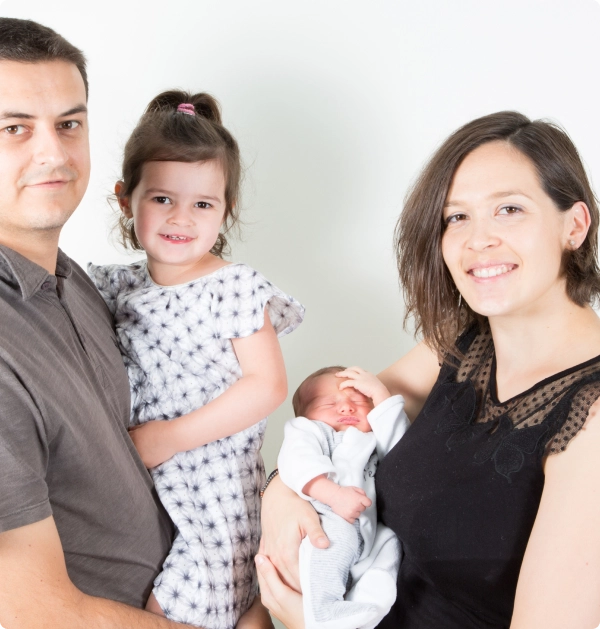PGD & PGS

PGD & PGS: what you need to know
Every parent dreams of giving their child the healthiest possible start in life. Preimplantation Genetic Diagnosis (PGD) and Preimplantation Genetic Screening (PGS) make that dream more attainable by helping identify and prevent the transfer of serious genetic conditions before pregnancy begins.
At World Center of Baby, we offer these advanced testing options as part of our full-cycle fertility care — ensuring the process is handled with precision, compassion, and complete transparency. We believe every parent deserves the chance to welcome a healthy baby, free from preventable genetic risks, and to experience the joy of parenthood with peace of mind.

Definition of PGD and PGS
Preimplantation Genetic Diagnosis (PGD) is a specialized form of genetic screening designed to detect and prevent the transmission of serious genetic and chromosomal conditions. This procedure analyzes embryos before implantation, ensuring that only healthy embryos are transferred during IVF — giving intended parents greater peace of mind and helping to prevent genetic diseases in their future child.
Preimplantation Genetic Screening (PGS), also known as aneuploidy screening, complements PGD by assessing whether embryos (created through IVF or ICSI) have the correct number of chromosomes. This step helps identify embryos with the best potential for healthy development and successful pregnancy.
Together, PGD and PGS play a vital role in modern reproductive medicine. They allow fertility specialists to identify and exclude embryos carrying certain genetic mutations, particularly when there’s a known family history of genetic or chromosomal disorders — helping intended parents move forward with confidence toward a healthy pregnancy.

What are chromosomal and monogenic abnormalities?
Every human has 23 pairs of chromosomes — 22 pairs of autosomes and one pair of sex chromosomes (XX for women and XY for men). When an egg is fertilized by sperm, each parent contributes one chromosome from every pair, passing on their genetic information to the child.
However, sometimes natural errors occur during this process, resulting in genetic changes that can affect development. These are known as chromosomal abnormalities, which fall into two main types:
Numerical abnormalities – when there are too many or too few chromosomes.
Structural abnormalities – when a chromosome’s shape or structure changes (for instance, if a segment is missing, duplicated, or rearranged).
Monogenic abnormalities, on the other hand, arise when a mutation occurs within a single gene, disrupting the body’s normal function and potentially causing hereditary disorders such as cystic fibrosis, hemophilia, or Huntington’s disease.
While both types of abnormalities can be passed on to future generations, advanced reproductive technologies such as PGD and PGS allow intended parents to identify and prevent these risks — helping ensure the birth of a healthy baby.

When is PGD recommended?
At World Center of Baby, we help intended parents receive a precise diagnosis of numerical anomalies (also known as aneuploidies), ensuring the health and well-being of their future child.
Thanks to Preimplantation Genetic Diagnosis (PGD), parents now have the life-changing opportunity to detect and prevent chromosomal abnormalities that may lead to genetic conditions such as:
- Down syndrome (trisomy 21)
- Trisomy 18 and trisomy 13
- Turner syndrome (45X)
- Klinefelter syndrome (47XXY)
- 47XYY and 47XXX
PGD is especially recommended in the following cases:











It’s important to remember that even perfectly healthy individuals can be carriers of chromosomal abnormalities without showing any visible signs. However, these hidden genetic factors can sometimes lead to infertility, miscarriages, or congenital disorders in children.
At World Center of Baby, we deeply understand the challenges faced by intended parents who may carry genetic risks. That’s why we dedicate our expertise and technology to minimizing these risks and helping more families welcome healthy, happy children with bright futures.
Fill out a short form below, and our coordinators will reach out to guide you toward a future free from genetic concerns and filled with new possibilities.
